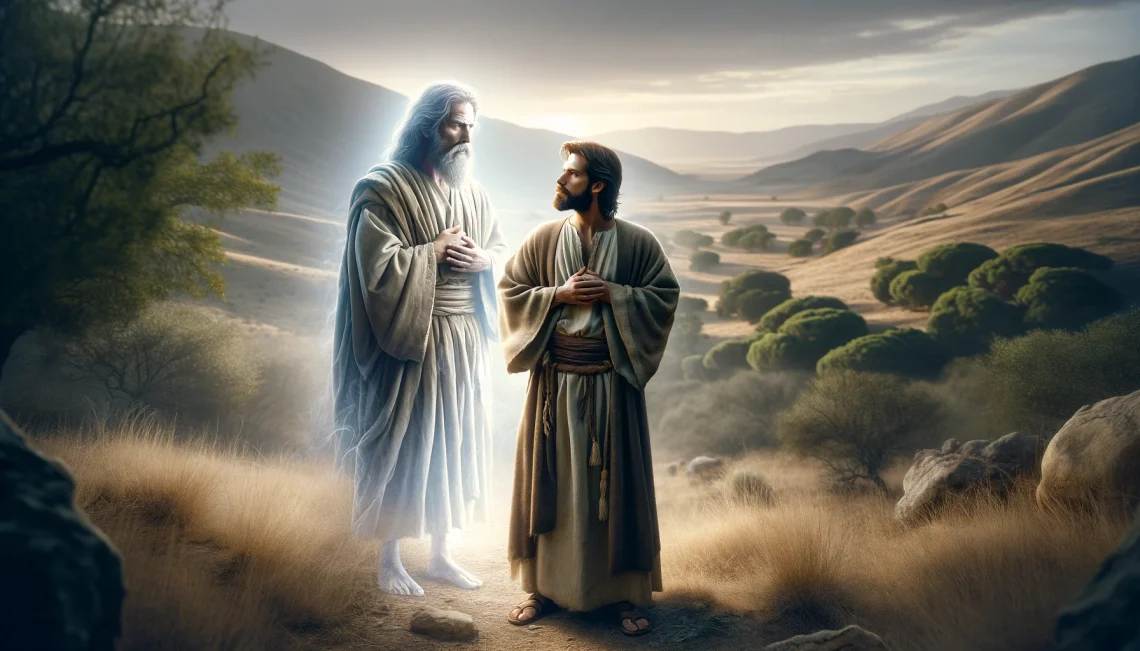In the wilderness of Judea, as John the Baptist preached and baptized, he drew the attention of the Pharisees. Curious about his identity and ministry, they sent a delegation to question him. “Are you the Messiah?” they asked. John denied this immediately. “What then? Are you Elijah?” they pressed. His answer was straightforward: “I am not” (John 1:21). This should have settled the matter, yet later, Jesus described John as “Elijah who is to come” (Matthew 11:14), creating a seeming contradiction that has puzzled believers and critics alike. Is John the Baptist Elijah or not?
To unravel this mystery, one must delve into the broader biblical context and the nuances within the texts.
The prophecy from Malachi 3 foretells a day of divine judgment and salvation, indicating that this day would be preceded by the ministry of a forerunner: “Behold, I send my messenger, and he will prepare the way before me” (Malachi 3:1). Similarly, Malachi 4 prophesies the coming Day of the Lord and also speaks of a preparatory messenger: “Behold, I will send you Elijah the prophet before the great and awesome day of the LORD comes” (Malachi 4:5-6). This prophetic expectation led many Jews during the intertestamental period to anticipate the return of the historic Elijah, who had ascended to heaven in a chariot of fire (2 Kings 2).
The Apocryphal book of Sirach, written in the second century B.C., reflects this expectation. Chapter 48 speaks of Elijah, taken up by a whirlwind of fire, who is expected to return and calm the wrath of God, turn the hearts of fathers to their children, and restore the tribes of Jacob (Sirach 48:9-10). This expectation was widespread among first-century Jews.
Given this context, John the Baptist could not have been Elijah in the literal sense. He was not the original prophet reappearing on earth. John was born to Zechariah and Elizabeth and thus was a different person altogether. In this sense, John’s denial of being Elijah was correct.
However, Jesus’ words about John the Baptist require careful consideration. Jesus connects John with Malachi’s prophecies in a nuanced way. He first describes John as the messenger foretold in Malachi 3:1 (Matthew 11:10; Luke 7:27; Mark 1:2ff). He then says, “And if you are willing to accept it, he is Elijah who is to come. He who has ears to hear, let him hear” (Matthew 11:13-14). This statement includes two important clues: First, “if you are willing to accept it” suggests that Jesus’ identification of John with Elijah differs from traditional Jewish expectations. Second, “He who has ears to hear, let him hear” indicates that understanding this connection requires careful thought.
Gabriel’s prophecy in Luke 1:16-17 further clarifies John’s role: “And he will turn many of the children of Israel to the Lord their God, and he will go before him in the spirit and power of Elijah.” Gabriel does not claim that John is the historic Elijah but rather that he would minister in the spirit and power of Elijah. Similarly, Zechariah describes his son John in terms of Malachi’s prophecies but does not equate him with the Elijah of the Old Testament (Luke 1:76, 78).
Therefore, John the Baptist was Elijah in the sense that he ministered “in the spirit and power of Elijah.” This included similarities in their messages, urging Israel to repent in view of impending divine wrath, and their bold confrontation of corrupt rulers. John, like Elijah, lived a life of rustic simplicity (Matthew 3:4; 2 Kings 1:8) and called out sin fearlessly (e.g., 1 Kings 18; Matthew 3:7-12).
Matthew 17 reveals the disciples’ struggle to understand these connections. After witnessing the transfiguration of Jesus, where Moses and Elijah appeared, they asked Jesus about Elijah’s return: “Why do the scribes say that first Elijah must come?” Jesus replied, “Elijah does come, and he will restore all things. But I tell you that Elijah has already come, and they did not recognize him, but did to him whatever they pleased” (Matthew 17:11-12). The disciples then understood that Jesus was speaking about John the Baptist (Matthew 17:13).
This understanding reinforces the distinction that John was not the historic Elijah but the one fulfilling Elijah’s role as a forerunner in the “spirit and power of Elijah.” Yet, Jesus’ comment about Elijah coming in the future suggests a dual fulfillment, possibly linked to the end-time witnesses in Revelation 11:1-14. Thus, John was a type of Elijah, but another fulfillment may still be anticipated.
This complex identification underscores several biblical principles:
- God’s words do not contradict themselves.
- Understanding Scripture requires careful meditation and comparison.
- Tradition must be examined in light of the whole biblical canon.
- God’s promises are unfailingly faithful and often understood more fully in hindsight.
John the Baptist’s role, despite his denial of being Elijah, fits perfectly within the biblical narrative when viewed through the lens of fulfilled prophecy and typology. His life and ministry prepared the way for Jesus, calling Israel to repentance and setting the stage for the Messiah’s redemptive work.
As we reflect on John’s identity and his role in God’s redemptive plan, it encourages us to trust in the coherence and depth of the Scriptures. Like John, who persevered despite misunderstandings and opposition, we too are called to faithfully serve and proclaim God’s message, trusting that His purposes will be accomplished in His perfect timing.






Leave a Reply